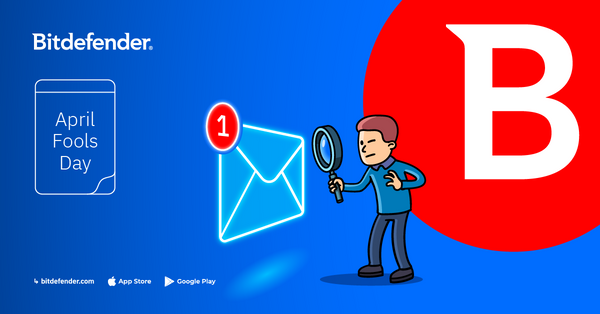Digital tips and tricks for a cyber-prank-free April Fool’s Day

The custom of playing practical jokes and pranks on friends, family and coworkers dates back centuries, with some historians even tracing the practice back to the Middle Ages.
April 1st is April Fool’s, a day everyone is on their toes, taking extra precautions to ensure they don’t become the next prankee.
We all have that one friend or family member who always tries to pull pranks or virtual gags. However, it’s not just harmless jokesters you need to ward off this April Fools. Con artists and digital tricksters target unwary individuals every day of the year, and this April 1st will be no exemption.
Cyberattackers never miss an opportunity, holiday, or event to steal personal information and money from unwary individuals, and, most importantly, they’re always stepping up their game and updating their tactics. Don’t believe us? Here are some chilling stats:
- Americans lost a whopping $30 billion in phone scams in 2021 (Source: FTC)
- 28% of scam callers use hacked data or scrapped personal info when conducting spam calls to trick victims into handing over sensitive data and money (Source: FirstOrion)
- 39% of vishing victims said the scammer knew their home address, and 17% said the fraudster knew their full Social Security number or parts of it (Source: FirstOrion)
- SMS spam and smishing texts rose 1000% between April 2021 and Feb 2022 (Source: Text-em-all)
You don’t have to turn into a full-time detective to fend off scammers who make a living out of tricking people out of their hard-earned money.
Stick to these easy tips and tricks for a prank-free April:
- Expect an increase in phishing and spam emails on April 1. Don’t click links or download attachments received via unsolicited correspondence. Any requests for sensitive info such as PINs, credit card numbers, SSNs, credentials and passwords should be discarded immediately.
- Watch out for impostor scams. Con artists may contact you and pretend to be an employee of your bank, a debt collector, a law enforcement officer, IRS agent, or a tech staffer from a known service provider. If someone calls to threaten you, ask for personal info or advise you to install remote access software on your device, hang up immediately and file a report with the police.
- Be wary of click-bait news, links and photos on social media platforms. Deep fake videos and audio recordings are everywhere online. They may look and sound very realistic, and besides spreading fake news, deep fake media can be used to conduct investment scams on unwary internet users.
- Maintain rigorous cyber hygiene by keeping your devices up to date, using your privacy settings, enabling 2FA or MFA on your accounts and by never oversharing on social media
- Don’t reuse passwords; use a password manager if you have difficulties generating and remembering unique passwords for all of your online accounts
- If you use a dating app or similar platform to find your sweetheart, don’t overshare, send sensitive videos or photos, transfer money, or start “investing” in crypto just because the person you are speaking with says they’re already in love with you.
- Use a security solution to protect your devices and data from phishing, ransomware and other malicious attacks.
Every Day is April Fool’s Day for cyber crooks and fraudsters. Grab a Bitdefender security solution to secure your digital wellbeing, privacy and identity from cybercrooks this April Fools’ Day and beyond.
tags
Author

The meaning of Bitdefender’s mascot, the Dacian Draco, a symbol that depicts a mythical animal with a wolf’s head and a dragon’s body, is “to watch” and to “guard with a sharp eye.”
View all postsRight now Top posts
How to Protect Your WhatsApp from Hackers and Scammers – 8 Key Settings and Best Practices
April 03, 2025
Outpacing Cyberthreats: Bitdefender Together with Scuderia Ferrari HP in 2025
March 12, 2025
Streamjacking Scams On YouTube Leverage CS2 Pro Player Championships to Defraud Gamers
February 20, 2025
How to Identify and Protect Yourself from Gaming Laptop Scams
February 11, 2025
FOLLOW US ON SOCIAL MEDIA
You might also like
Bookmarks









